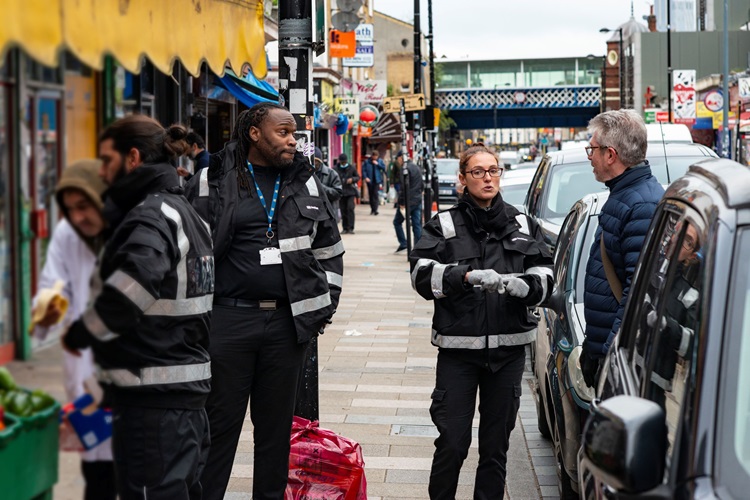New ten-year plan unveiled to prevent waste and boost recycling
Over the past decade, waste from households across Lewisham has decreased by 27% and the amount of rubbish sent for reuse, recycling or composting has gone up by 9%, as revealed in Lewisham’s Waste Management Strategy 2021-2031 which was formally approved by the Council’s Mayor and Cabinet last night.
The new strategy – which was developed in consultation with local residents and businesses – aims to further reduce the amount of waste produced locally by encouraging residents and businesses to move towards a circular economy. This means focusing on keeping resources in use for as long as possible – for example, by repurposing or exchanging items you no longer need.
Establishing local community composting initiatives, setting up a Green Champions scheme to support local people to become waste ambassadors and expanding Lewisham’s food waste collection service are just some of the plans set out in the strategy, which comes into effect in January 2022.
It will also focus on further tackling waste crimes, such as fly tipping, which have a detrimental impact on residents, businesses, our local environment and Council resources. The Council has already taken significant steps to tackle waste crime in the borough, including setting up a dedicated Environmental Crime Team who engage with residents to ensure that they know how to responsibly dispose of unwanted items and enforce against the small minority who commit waste crimes - including issuing on-the-spot fines for residents and businesses who are caught fly tipping.

Our Environmental Crime Enforcement Team out in Deptford last month with Cllr Patrick Codd, Cabinet Member for Environment and Transport
A food waste service is currently offered to houses in Lewisham, but the Council will look into whether this can be expanded to estates and blocks of flats as part of the new plans. It will also carry out a feasibility study to determine whether its existing Commercial Waste Service for businesses can be expanded to include food waste.
The strategy sets out six key priorities for local waste management over the next decade:
- Leading the way forward – making sure that the Council shows innovation and leadership in the way that waste is managed in Council workplaces, schools, community centres, public spaces and future developments.
- Shaping services in line with the Waste Hierarchy - which gives top priority to preventing waste and reducing and reusing resources.
- Working together for an improved local environment – giving residents and businesses the tools and information that they need to improve local waste management and decrease waste crimes.
- Using waste as a resource, in line with circular economy principles – repurposing materials to keep them in use for longer, supporting the local sharing, exchanging and repairing of products, and reducing reliance on single-use items.
- Reducing carbon emissions, decreasing energy waste and improving air quality – including making sure that Council buildings and services are energy efficient and ensuring that waste is managed locally and transported by low emission vehicles.
- Adding social value – increasing local employment opportunities, supporting community initiatives and promoting the use of local products and services.
These plans will go hand-in-hand with the Council’s wider work in recent years to create a greener Lewisham, which includes planting 24,000 trees; making adult learning centres,; Council homes and schools more energy efficient; and introducing 26 school streets to help children walk and cycle to school safely – with more to come in the new year.
Cllr Patrick Codd, Cabinet Member for Environment and Transport, said: “Transforming the way that we manage waste is a vital part of the fight against climate change and our work to create a cleaner, greener and healthier Lewisham.
“Recycling rates have improved over the past ten years, but there is still much more to be done. We need to focus on reducing and reusing resources first and foremost, and our new Waste Strategy will help us do this by supporting our move towards a circular economy, which focuses on preventing waste by repurposing, repairing and exchanging items locally, whilst also strengthening our local economy and bringing businesses and communities together.
“Whilst we’ll continue to do everything that we can to create a cleaner, greener borough, we can’t achieve this on our own. As part of this strategy, we’ll be working with our communities to ensure that they have the tools and information they need to help us effectively manage waste, tackle waste crimes and protect the environment for future generations.
“Thank you to everyone who has shared their views and ideas and supported this strategy. Your input will help shape our approach to responsible waste management in the years to come.”